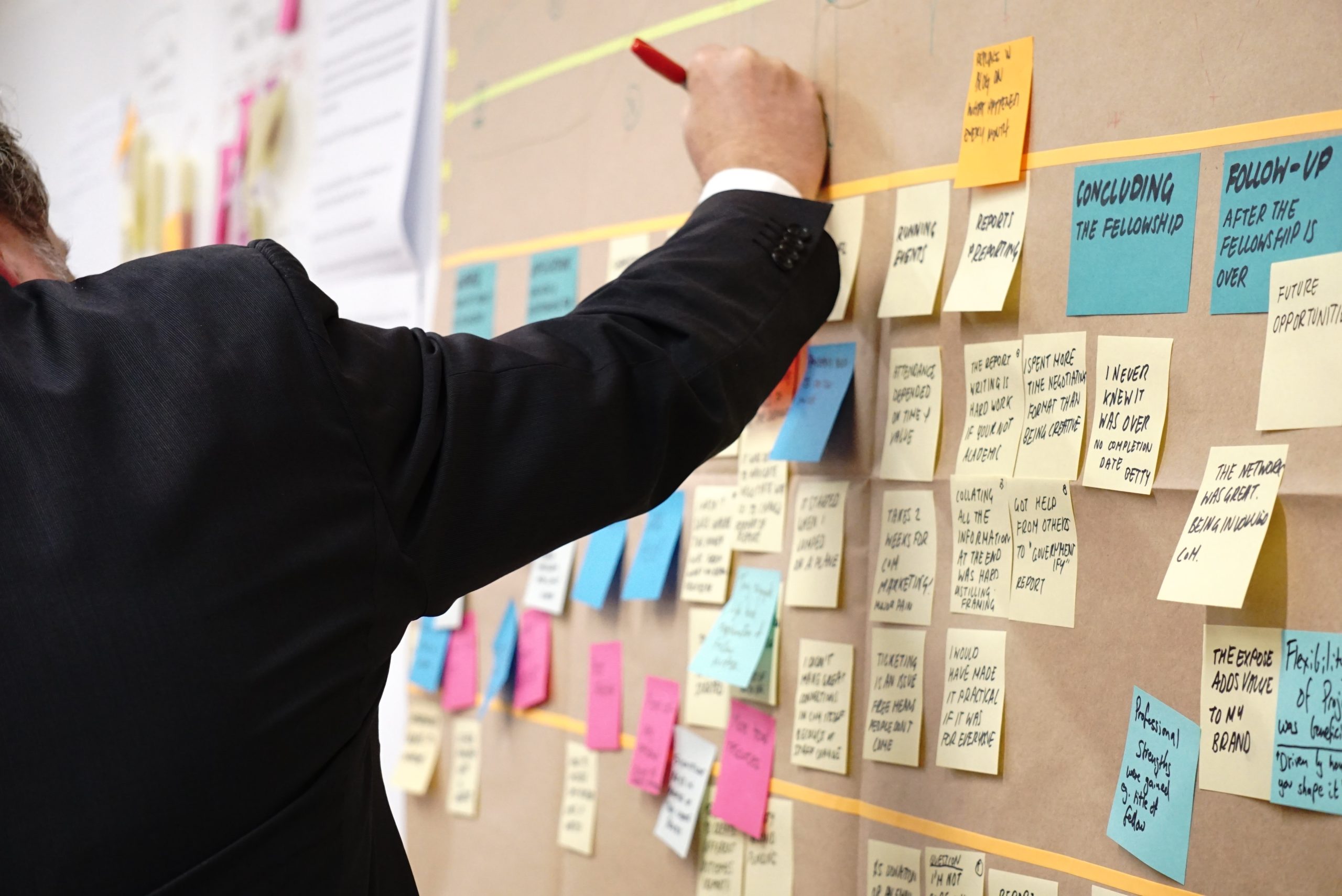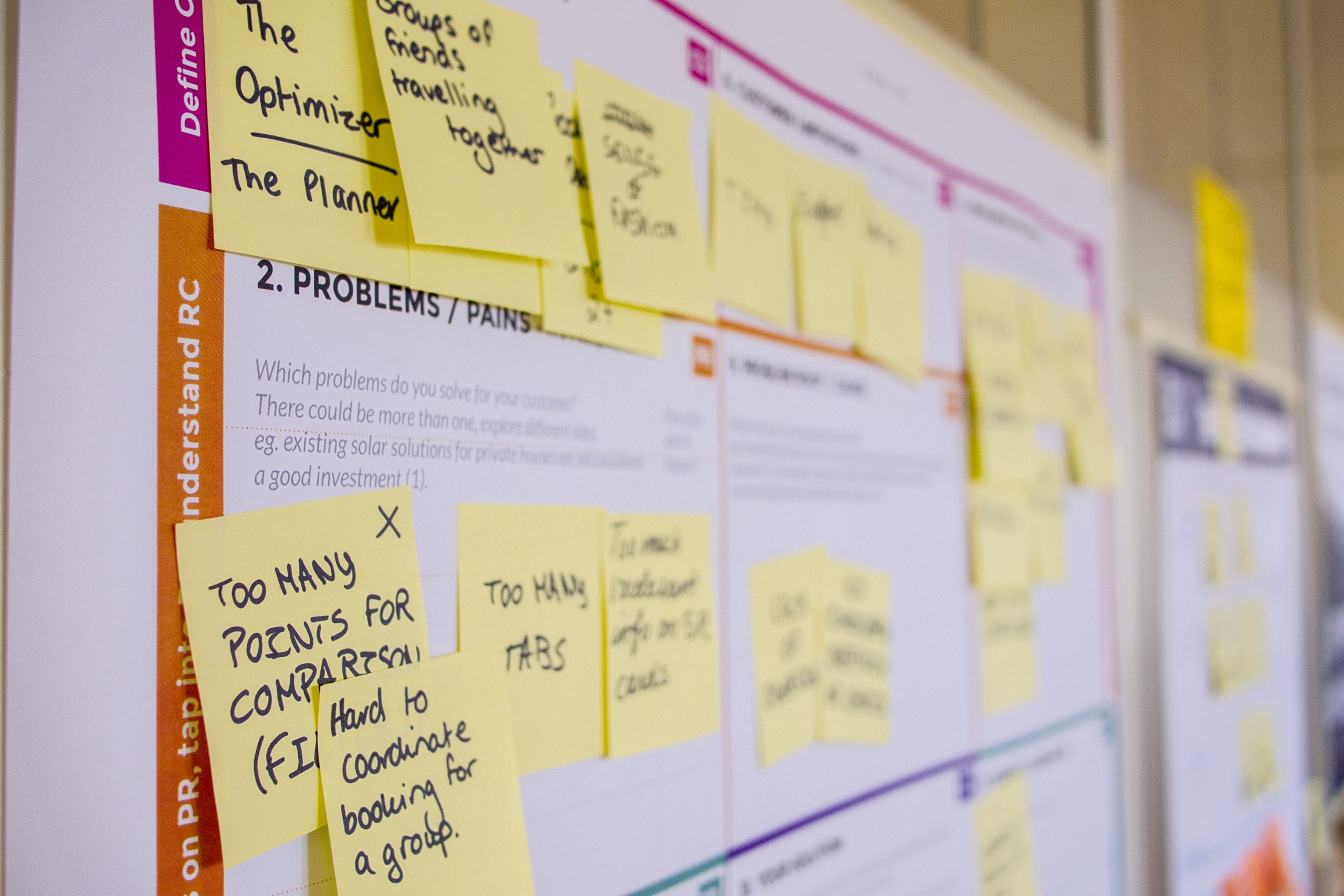10 Things Successful Students Do
2 Successful students take responsibility
A college campus is almost like a small town—or country—unto itself. The campus has its own security force, its own government, its own stores, its own ID cards, its own parking rules, and so on. Colleges also have their own policies regarding many types of activities and behaviors. Students who do not understand the rules can sometimes find themselves in trouble.

The most important non-academic policy is a Code or Statement on Student Rights and Responsibilities. Such policies are designed to ensure that all students have the same right to a quality education—one not unfairly interrupted by the actions of others. The most important academic policy is academic honesty. The principle of academic honesty is simple: every student must do their own work. Colleges also have policies about alcohol and drug use, sexual harassment, hazing, hate crimes, and other potential problems. The college registrar has policies about course add and drop dates, payment schedules and refunds, and the like. You will find these policies on your college website. It is vital that you are aware of these policies as you begin your college career and that you are aware of how to solve problems, and make good decisions.
College, The St. Clair Way
While your college may have unique features to its culture and expectations, the general principles presented here are true for most North American Post Secondary institutions. This video was created for use at Orientation with new students at St. Clair College to explain our college culture. (You may recognize our own Irene Stewart in the video). We recommend that you review this video and work through the self-checks to ensure you are aware of your responsibilities as a student and of the college community that is available to help you be successful.
Self-Management
To succeed in college, you need to take control of your life. Gone are the days when you could just “cruise” through school, or life, or let others motivate you or establish schedules to manage your time. This change presents an exciting opportunity. It’s your first step in your new life and the key to your future.

Here are a few thoughts to get you started in the right direction:
Accept responsibility for your life. You are on equal footing with everyone else and have the same opportunities to succeed.
Decide what you want to do. Don’t let things just happen—make them happen by deciding that they should happen.
Realize you can change. You can change your habits to become a better student. You can change your attitudes and become a more positive, motivated student.
Develop a personal ethical code. Do what is right for you and for others. The college world demands ethical standards and rewards responsible, ethical behavior. Be proud of who you are and your good decisions.
Enjoy your life! Going to college might seem overwhelming at times, but no one is asking you to “give up your life” to succeed in college. Enjoy meeting new people, learning new things, and experiencing the diversity of the college experience. Most college graduates look back on their college years as one of the best periods in their whole lives!
Problem Solving: When Setbacks Happen
Even when you have clear goals and are motivated and focused to achieve them, problems sometimes happen. Accept that they will happen, since inevitably they do for everyone. The difference between those who succeed by solving the problem and moving on and those who get frustrated and give up is partly attitude and partly experience —and knowing how to cope when a problem occurs.
Lots of different kinds of setbacks may happen while you’re in college — just as to everyone in life. Here are a few examples:
- A financial crisis
- An illness or injury
- A crisis involving family members or loved ones
- Stress related to frequently feeling you don’t have enough time
- Stress related to relationship problems

Some things happen that we cannot prevent. But many other kinds of problems can be prevented or made less likely to occur.
- You can take steps to stay healthy.
- You can take control of your finances and avoid most financial problems common among college students.
- You can learn how to build successful social relationships and get along better with your professors, with other students, and in personal relationships.
- You can learn time management techniques to ensure you use your time effectively for studying.
- You can learn to do well in your classes with effective reading, notetaking, test-taking, and writing skills for classes.
Preventing the problems that typically keep college students from succeeding is much of what this Guide is all about.
Not all problems can be avoided. Illness or a financial problem can significantly set one back — especially when you’re on a tight schedule and budget. Other problems, such as a social or relationship issue or an academic problem in a certain class, may be more complex and not easily prevented. What then?
First, work to resolve the immediate problem:
- Stay motivated and focused. Don’t let frustration, anxiety, or other negative emotions make the problem worse than it already is.
- Analyze the problem to consider all possible solutions. An unexpected financial setback doesn’t automatically mean you have to drop out of school – not when alternatives such as student loans, less expensive living arrangements, or other possible solutions may be available. Failing a midterm exam doesn’t automatically mean you’re going to fail the course – not when you make the effort to determine what went wrong, work with your professor and others on an improved study plan, and use better strategies to prepare for the next test.
- Seek help when you need to. None of us gets through life alone, and it’s not a sign of weakness to see your academic advisor or a college counsellor if you have a problem.
- When you’ve developed a plan for resolving the problem, work to follow through. If it will take a while before the problem is completely solved, track your progress in smaller steps so that you can see you really are succeeding. Every day will move you one step closer to putting it behind you.

After you’ve solved a problem, be sure to avoid it again in the future:
- Be honest with yourself: how did you contribute to the problem? Sometimes it’s obvious: a student who drank heavily at a party the night before a big test failed the exam because he was so hung over he couldn’t think straight. Sometimes the source of the problem is not as obvious but may become clearer the more you think about it. Another student did a lot of partying during the term but studied all day before the big test and was well rested and clearheaded at test time but still did poorly; he may not yet have learned good study skills. Another student has frequent colds and other mild illnesses that keep him from doing his best: how much better would he feel if he ate well, got plenty of exercise, and slept enough every night? If you don’t honestly explore the factors that led to the problem, it’s more likely to happen again.
- Take responsibility for your life and your role in what happens to you. Earlier we talked about people with negative attitudes, who are always blaming others, fate, or “the system” for their problems. It’s no coincidence that they keep on having problems. Unless you want to keep having problems, don’t keep blaming others.
- Taking responsibility doesn’t mean being down on yourself. Failing at something doesn’t mean you are a failure. We all fail at something, sometime. Adjust your attitude so you’re ready to get back on track and feel happy that you’ll never make that mistake again!
- Make a plan. You might still have a problem on that next big test if you don’t make an effective study plan and stick to it. You may need to change your behavior in some way, such as learning time management strategies.

Making Decisions
Much of your college and professional life will be spent solving problems; some will be complex, such as deciding on a career, and require time and effort to come up with a solution. Others will be small, such as deciding what to eat for lunch, and will allow you to make a quick decision based entirely on your own experience. But, in either case, when coming up with the solution and deciding what to do, follow the same basic steps.
• Define the problem. Use your analytical skills. What is the real issue? Why is it a problem? What are the root causes? What kinds of outcomes or actions do you expect to generate to solve the problem? What are some of the key characteristics that will make a good choice: Timing? Resources? Availability of tools and materials? For more complex problems, it helps to actually write out the problem and the answers to these questions. Can you clarify your understanding of the problem by using metaphors to illustrate the issue?
• Narrow the problem. Many problems are made up of a series of smaller problems, each requiring its own solution. Can you break the problem into different facets? What aspects of the current issue are “noise” that should not be considered in the problem solution? (Use critical thinking to separate facts from opinion in this step.)
• Generate possible solutions. List all your options. Use your creative thinking skills in this phase. Did you come up with the second “right” answer, and the third or the fourth? Can any of these answers be combined into a stronger solution? What past or existing solutions can be adapted or combined to solve this problem?
• Choose the best solution. Use your critical thinking skills to select the most likely choices. List the pros and cons for each of your selections. How do these lists compare with the requirements you identified when you defined the problem? If you still can’t decide between options, you may want to seek further input trusted friends and family, your professors or college counsellors.
Contributing to Decision Making
You will be called on to make many decisions in your life. Some will be personal, like what to major in, or whether or not to get married. Other times, you will be making decisions on behalf of others at work or for a volunteer organization. Occasionally, you will be asked for your opinion or experience for decisions others are making.
To be effective in all of these circumstances, it is helpful to understand some principles about decision making.

First, define who is responsible for solving the problem or making the decision. In an organization, this may be someone above or below you on the organization chart but is usually the person who will be responsible for implementing the solution. Deciding on an academic major should be your decision, because you will have to follow the course of study. Deciding on the boundaries of a sales territory would most likely be the sales manager who supervises the territories, because he or she will be responsible for producing the results with the combined territories.
Once you define who is responsible for making the decision, everyone else will fall into one of two roles: giving input, or in rare cases, approving the decision. Understanding the role of input is very important for good decisions. Input is sought or given due to experience or expertise, but it is up to the decision maker to weigh the input and decide whether and how to use it. Input should be fact based, or if offering an opinion, it should be clearly stated as such. Finally, once input is given, the person giving the input must support the other’s decision, whether or not the input is actually used.
Consider a team working on a project for a science course. The team assigns you the responsibility of analyzing and presenting a large set of complex data. Others on the team will set up the experiment to demonstrate the hypothesis, prepare the class presentation, and write the paper summarizing the results. As you face the data, you go to the team to seek input about the level of detail on the data you should consider for your analysis. The person doing the experiment setup thinks you should be very detailed, because then it will be easy to compare experiment results with the data. However, the person preparing the class presentation wants only high-level data to be considered because that will make for a clearer presentation. If there is not a clear understanding of the decision-making process, each of you may think the decision is yours to make because it influences the output of your work; there will be conflict and frustration on the team. If the decision maker is clearly defined upfront, however, and the input is thoughtfully given and considered, a good decision can be made (perhaps a creative compromise?) and the team can get behind the decision and work together to complete the project.
Finally, there is the approval role in decisions. This is very common in business decisions but often occurs in college work as well (the professor needs to approve the theme of the team project, for example). Approval decisions are usually based on availability of resources, legality, history, or policy.
Decision making self-check:
Important College Policies

One of the most important things that successful students do to take responsibility is to review the policies the govern the college community. It is vital that you seek out and review the policies for your college. These policies impact you as a student and your awareness of the standards, time lines and regulations can prevent you from making missteps that impact your education.
Common policies include:
- Student Handbook: This document provides a comprehensive overview of university regulations, policies, procedures, and resources. It’s the first document every student should familiarize themselves with.
- Code of Student Rights & Responsibilities: Similar to the Code of Conduct, this document outlines the expected behaviors of students and the potential consequences for violating these expectations.
- Academic Integrity Policy: This policy outlines the expectations around academic honesty, which include plagiarism, cheating, and other forms of academic dishonesty.
- Residence Agreement/Handbook: If students are living on campus, it’s essential to understand the rules and guidelines of their specific residence hall or on-campus apartment.
- Alcohol and Cannabis Policy: Universities in Ontario have policies around the use of alcohol and cannabis on campus. Understanding these rules can help prevent violations.
- Sexual Violence Policy: This policy is crucial to understand in the context of Ontario’s Bill 132, which requires post-secondary institutions to have specific policies in place to combat sexual violence on campus.
- Health and Safety Policies: These cover a wide range of topics, including emergency procedures, health center policies, mental health resources, and information on reporting safety concerns or incidents.
- Information Technology Acceptable Use Policy: This policy includes the guidelines for using the university’s digital resources, such as Wi-Fi, email, and other online services.
- Student Financial Policies: It’s important to understand the terms and conditions of any student loans, scholarships, bursaries, or grants. This can also include the university’s tuition refund policy.
- Accessibility Services Policy: These guidelines help students understand how to access and arrange accommodations for disabilities or chronic illnesses.
- Human Rights Policy: This policy outlines the university’s commitment to creating an environment free from discrimination and harassment.
- Privacy Policies: Universities have policies outlining how they handle and protect student data.
- Course Outlines/Syllabi: These will provide expectations, grading criteria, faculty office hours, and other course-specific information.Additionally, it’s beneficial for students to review their campus map and key facilities, and familiarize themselves with any specific departmental or faculty guidelines relevant to their course of study. Students should also be aware that each university or college may have unique policies and documents important for its community, so it’s a good idea to review any information provided thoroughly.
Let’s take a closer look at some of these policies.
Code of Student Rights and Responsibilities

As a student you are valued and respected, you will be treated as an adult through this exciting journey. You will be provided with many opportunities to grow, excel and flourish; of course, along the way you will make mistakes which is expected. Mistakes are opportunities for personal growth and change; we are defined by what we learn from our mistakes. At St. Clair College, we want to guide you through potential mistakes and mitigate any potential actions that could alter your path to graduation and success, hence we introduce to you the Code of Student Rights and Responsibilities (The Code).
Student’s Rights and Responsibilities at St. Clair College
Academic Integrity – The Honest Truth
Let’s rejoin Irene Stewart and learn more about Academic Integrity. Academic Integrity is a common term in North American Post Secondary education but not everyone is familiar with meaning of integrity, if it helps, you can use the word “Honesty” in place of integrity!
At college, we focus on the active process of learning, not just on how to get good grades. The attitude of some students that grades are the only thing that matters in academics has led many students to resort to academic dishonesty to try to get the best possible grades or handle the pressure of an academic program. Although you may be further tempted if you’ve heard people say, “Everybody does it,” or “It’s no big deal at my school,” you should be mindful of the consequences of cheating:
- You don’t learn as much. Cheating may get you the right answer on a particular exam question, but it won’t teach you how to apply knowledge in the world after school, nor will it give you a foundation of knowledge for learning more advanced material.
- When you cheat, you cheat yourself out of opportunities.
- You risk failing the course or even expulsion from school. Ignorance of the rules is seldom considered a valid defense.
- Cheating causes stress. Fear of getting caught will cause you stress and anxiety; this will get in the way of performing well with the information you do know.
- You’re throwing away your money and time. Getting a college education is a big investment of money and effort. You’re simply not getting your full value when you cheat, because you don’t learn as much.
- You are trashing your integrity. Cheating once and getting away with it makes it easier to cheat again, and the more you cheat, the more comfortable you will feel with giving up your integrity in other areas of life—with perhaps even more serious consequences.
- Cheating lowers your self-esteem. If you cheat, you are telling yourself that you are simply not smart enough to handle learning. It also robs you of the feeling of satisfaction from genuine success.
- Technology has made it easier to cheat. But be aware that technology has also created ways for professors to easily detect these forms of academic dishonesty. If you feel uneasy about doing something in your college work, trust your instincts. Confirm with the professor that your intended form of research or use of material is acceptable.
Cheating just doesn’t pay.
The Honest Truth about Dishonesty
Understanding Academic Misconduct
Academic misconduct is a general term which describes academic offences detrimental to the College’s learning environment. These offences diminish the trust that is essential in the teaching and learning process. The teaching and learning process can be understood as a dialogue between professor and student that builds on existing knowledge and advances scholarship. If a student falsifies his or her side of this process, learning is compromised and the foundation upon which knowledge is built is put at risk.
While students should be concerned about the penalties that may come from academic misconduct, such as failing the course, the more serious consequence is that they will lack the knowledge and skills necessary in their chosen field of study. In order to gain understanding and advance learning, students must engage in the learning process honestly.
Academic misconduct is otherwise known as “cheating”. Cheating puts honest students at a disadvantage by failing to maintain a fair learning environment. We must all work together to prevent cheating.
- Academic misconduct can take various forms:
- Cheating on exams
- Unauthorized collaboration on individual assignments
- Adding a name to group assignment submission without contributing an appropriate share to the project
- Allowing someone else to copy your work
- Impersonating a candidate in an exam or test
- Altering or providing false medical or academic information
- Plagiarism such as using direct quotations or sections of paraphrased material without citing appropriate references; cutting and pasting from the Internet without appropriate references; and submitting essays, assignments, labs, projects, take-home exams, computer programs, etc., written, in whole or in part, by someone else
- Two areas where students can make unintentional academic mis-steps
Plagiarism

Plagiarism means using the work of someone else, in whole or in part, without giving credit. Plagiarism is one of the most common forms of academic misconduct at college. It is important that students educate themselves about what plagiarism is because plagiarism is a form of academic misconduct that can result unintentionally. While a student may not intend to “cheat”, failing to properly follow academic guidelines in written work can result in serious penalties.
Be sure that the coursework that you submit is your own. Although requirements for assignments vary from course to course, the work you are graded on should be your own. If there is any doubt about what is allowable, be sure to seek clarification from your professor.
Generally, if an assignment requires that you to develop an idea and express it in your own words you should do just that. Quoting other people’s work in these types of assignments should be done sparingly.While quoting someone else’s writing is allowable, and in some cases required, rules and conventions must be followed for quoting and citing.
- Always avoid the following:
Copying someone else’s writing word-for-word, even if it constitutes only some of your written assignment - Paraphrasing someone else’s writing too closely, even if it constitutes only some of your written assignment
- Presenting someone else’s idea as your own without properly citing it
- Allowing someone else to write your assignment or part of it
- Submitting all or part of an assignment obtained from a commercial paper mill
- Using electronic databases or the Internet and submitting the product as your own work, even if it constitutes only some of your written work
- Writing an assignment together with someone else in the course (unless the professor has expressly allowed collaboration)
- Submitting the same paper in more than one course without the permission of the professors
More information about avoiding Plagiarism and tutorials on APA citation style are available to you in our Successful Students Learn Independently module in the Writing section. We encourage you to review this material before your first written assignment.
Unauthorized Collaboration

Unauthorized collaboration means working with others on assignments that will be submitted for a grade without the specific permission of the professor. Students MAY NOT collaborate without professor authorization. Unauthorized collaboration misrepresents joint work as the work of the individual. It leads to an unfair advantage over students who follow the rules and do their own work. Additionally, those who do not complete their work independently may not be aware of gaps in their own knowledge and skills and they do not learn all they can or should from their assignments.
Unauthorized collaboration includes:
- Working out answers to homework assignments with others
- Working on take-home work with others
- “Checking” homework answers with others
- Having someone else help write or re-write a paper
The rules regarding collaboration vary from course to course and assignment to assignment. Professors may permit collaboration on some assignments and not others in the same course. Professors have different teaching methods and goals. Some teaching methods focus on important lessons learned from working individually. These assignments are designed to develop a student’s own individual skills, knowledge and confidence. It also provides a more accurate evaluation of the individual student’s strengths and weaknesses.
Other teaching methods are designed to develop students’ abilities to solve problems together through collaboration. This provides teamwork experience: learning is achieved by sharing strategies and exchanging information. The rules of whether collaboration is authorized on a given assignment will depend on the learning goals and teaching method used. Collaboration is not permitted unless the professor has specifically authorized it. If you are unclear about the requirements of an assignment, seek clarification from your professor.
If an professor assigns a group project or allows collaboration on an assignment, students may not exceed the limits set by the professor. Even if your professor authorizes collaborative work, copying someone else’s work or allowing them to copy yours is considered academic misconduct.
These rules do not mean that students may not study together or in groups to help each other in better understanding course material. The rules apply to assignments that will be submitted for grading. Forming study groups, for example, to prepare for an in-class test that has not been pre-issued does not constitute unauthorized collaboration.
Academic Integrity Self-Check
Key Takeaways
- Every college has policies that students should review and follow. It is vital that you seek out and review the policies in place at your college as early as possible.
- The principle of academic honesty is that every student must do their own work.
- Self management requires you to take control of your life, accept responsibility, make good decisions and make changes as needed.
- Making good decisions and taking control are ways to prevent problems.
- When problems occur, work through the problem solving steps and consider how to avoid similar problems in the future.
- When making decisions, clearly define the problem before considering various solutions and choose the best solution available.

Want More? The Learning Portal’s resources on Academic Integrity more resources on how to avoid mis-steps

